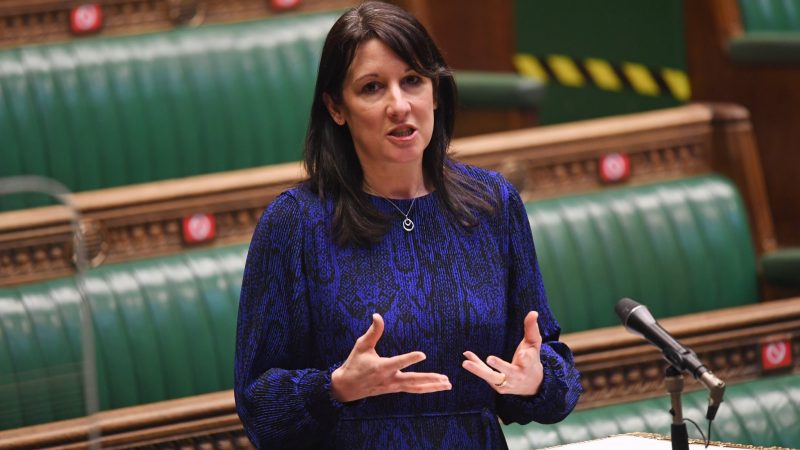
The government has ignored a vote on the Labour Party proposal to cancel the planned National Insurance rise, despite Tory MP criticisms of the hike and the cost of living crisis deepening since the move was first announced.
In an opposition day debate this afternoon, Shadow Chancellor Rachel Reeves urged ministers to axe the increase in National Insurance contributions, which is set to be introduced in April.
The Labour opposition day motion considered by MPs today did not go to a formal division and was passed by MPs unopposed, as Conservatives abstained.
Boris Johnson has regularly instructed his MPs to abstain on motions put forward by the opposition, a policy that his predecessor Theresa May pursued, despite having a large majority in the Commons.
Reeves strongly criticised the government’s intention to continue with the rise, arguing that “when the facts change, so should your policies”. She called for the rise to be scrapped either today or at the Spring Budget on March 23rd.
“People cannot afford ministers to carry on regardless of worsening circumstances. The Chancellor must show some understanding of the real-world consequences of his policies on working people and on businesses,” she said.
Reeves argued that the manifesto-breaching rise “belongs to the entire Conservative government and especially to the Chancellor, who seems not to want to take responsibility for his own tax rises”, noting that Rishi Sunak was not present for the debate.
The Shadow Chancellor added: “Never before have taxpayers been asked to pay so much and get so little in return. It’s time for the Chancellor to urgently change direction. The National Insurance tax rise was wrong in September, and it’s even worse in March. It’s the wrong tax at the wrong time.”
Responding for the government, Chief Secretary to the Treasury Simon Clarke emphasised the need to address the Covid backlog and tackle issues in the social care sector.
He said the new levy “will allow us to achieve both our health and social care aims”, describing it as “a transformative policy that will tackle serious and long-standing issues”.
Labour has highlighted that private sector employees will face a “double whammy” as a result of the increase in National Insurance, with employers expected to pass on the cost of their own increased contributions.
The opposition party has made its findings based on Office for Budget Responsibility research, which estimated that 80% of the increase in employers’ contributions would be “passed through to workers via lower nominal wages”.
Survey data published by the Institute of Directors in January revealed similar findings. 38% of the businesses surveyed said they would “raise prices to offset some or all of the cost” of the tax increase. 19% reported that they would “employ fewer people”.
Labour has strongly criticised the proposed rise amid growing concerns about the cost of living. Shadow Chief Secretary to the Treasury Pat McFadden argued in January that the government is “whacking up business and working people’s taxes at the worst possible time”.
“People are already feeling the crunch from cost of living, but the triple whammy of an imminent rise in the energy price cap, real wages falling and Tory tax rises coming down the tracks are going to make this crisis even worse,” he said.
The government plan has also received criticism from within the Conservative Party. MPs including minister Jacob Rees-Mogg and backbencher Tom Tugendhat have called for the rise to be delayed.
Tory MP David Davis called in January for a rethink of the decision to increase contributions. He argued that the proposal was based on “quite a lot of wrong data”, as at the time ministers “didn’t know quite what pressure there would be on ordinary people”.




More from LabourList
Government abandons plans to delay 30 local elections in England
‘The cost of living crisis is still Britain’s defining political challenge’
‘Nurses are finally getting the recognition they deserve’